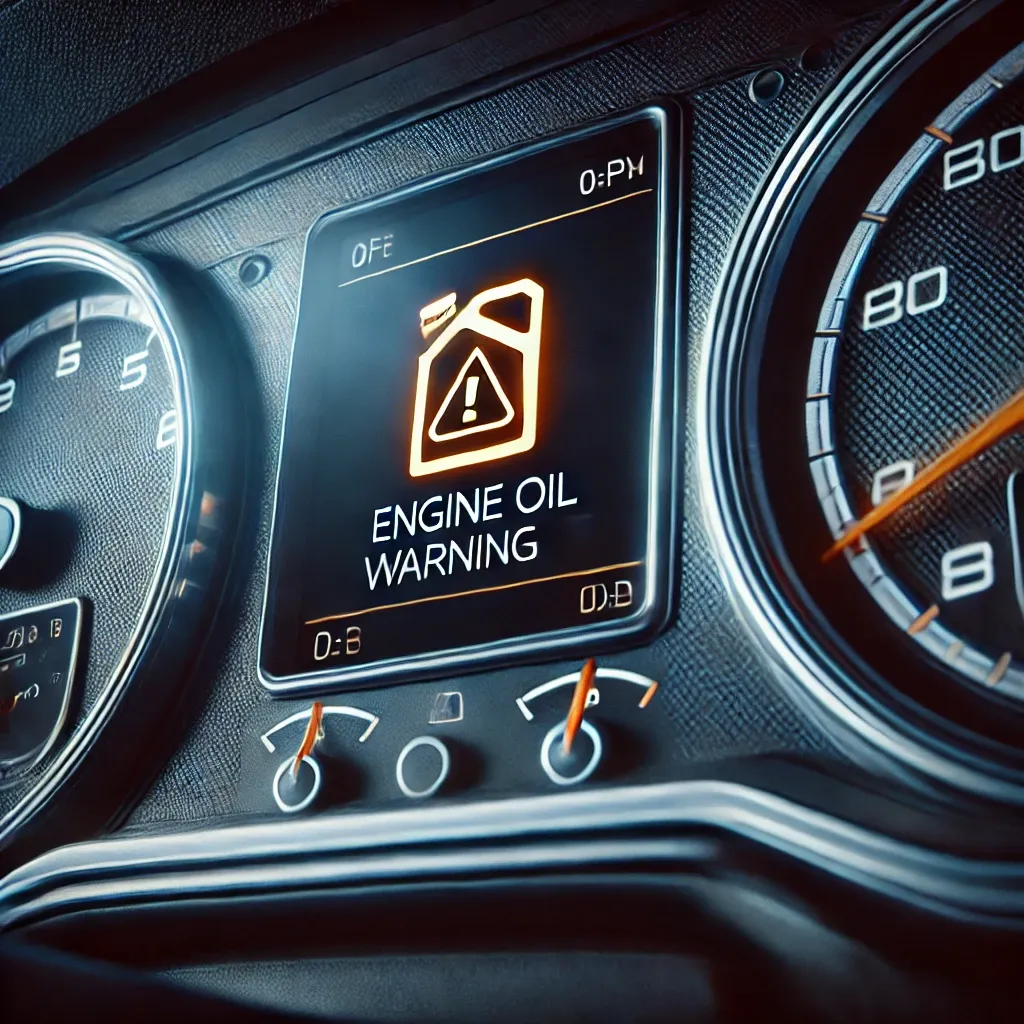Have you ever seen the engine oil warning light on your dashboard? Why does it flicker, and what should you do if it appears while driving? Get the essential information you need to keep your engine running smoothly, even during winter.
When you’re driving, few things are as alarming as seeing a warning light pop up on your dashboard. One of the most crucial indicators you may encounter is the engine oil warning light. This small symbol, which usually resembles an oil can, signifies an issue with your car’s oil system, which can have a significant impact on your engine’s performance. But what should you do when this light comes on? And why does it sometimes flicker or behave differently during winter months?
This article breaks down the importance of engine oil warning lights, explaining their causes, how they vary in different conditions, and how you should react when one appears.
Engine Oil Warning Light: What It Means and Why It Matters
When your engine oil warning light illuminates, it’s your car’s way of telling you that there’s an issue with the oil levels or the oil pressure in your engine. Oil plays a crucial role in keeping the engine lubricated, preventing overheating, and reducing friction. Without the proper amount or pressure of oil, your engine can suffer serious damage.
Here are some potential causes of an engine oil warning light:
-
Low oil levels This is the most common reason for the warning light. If the oil level is too low, there may not be enough lubrication to keep the engine components functioning smoothly.
-
Oil pressure issues A drop in oil pressure could indicate a faulty oil pump or a blocked oil filter. This might also happen if the oil is too thick or dirty.
-
Oil leakage Sometimes, the oil light comes on because of a leak in the oil system, which means the oil is draining out faster than it should be.
Ignoring this warning could lead to engine damage, so it’s important to address the issue promptly.
What Should You Do When the Engine Oil Warning Light Appears?
-
Pull over and check the oil levels If you’re in a safe location, pull over and check your engine oil levels using the dipstick. If it’s low, add the recommended type of oil for your car.
-
Turn off the engine If you suspect an oil pressure issue, turn off the engine to prevent potential damage.
-
Consult your owner’s manual Every car is different, so refer to your car’s manual for the specific oil pressure requirements and recommended oil types.
-
Visit a mechanic If you’re unsure about the cause or solution, have your car checked by a professional mechanic as soon as possible.
Learn more about engine oil maintenance 👉
Engine Oil Warning Light in Winter: What You Need to Know
Winter months can have a unique effect on your car’s engine and oil system. Cold temperatures can cause engine oil to thicken, which might trigger the engine oil warning light, even if the oil is at the right level. But what exactly happens during winter that affects the oil pressure?
-
Thickened oil When the temperature drops, engine oil becomes thicker and more viscous. This can lead to a temporary drop in oil pressure, which might cause the warning light to turn on.
-
Cold starts During the initial startup in cold weather, the oil may not circulate as efficiently because it’s thicker. This can lead to lower oil pressure until the engine warms up.
-
Battery issues In cold weather, your car’s battery has to work harder, which can impact the engine’s ability to circulate oil effectively.
Tips for Maintaining Proper Oil Pressure During Winter:
-
Use the right oil for winter Make sure you’re using winter-grade oil that can handle lower temperatures. Thinner oils, such as 5W-30, flow better in cold weather.
-
Warm up the engine Allow the engine to run for a few minutes before driving, especially in extremely cold weather. This helps the oil circulate and reduces the chances of the warning light appearing.
-
Regular maintenance Change your oil as per your vehicle’s maintenance schedule. Dirty or old oil is more likely to thicken and cause problems in cold weather.
-
Check for leaks Winter can exacerbate oil leaks. Keep an eye on oil levels and look for any signs of leaks, as these could worsen during cold weather.
Learn how winter affects engine oil 👉
Engine Oil Warning Light While Driving: How to React
Seeing the engine oil warning light while you’re driving can be a stressful experience, but it’s essential to stay calm and take action immediately. Ignoring it could result in costly engine damage or, in severe cases, engine failure. Here’s how to respond when you’re on the road:
-
Don’t panic While the engine oil warning light is concerning, driving aggressively in an attempt to “get to the next service station” could make things worse.
-
Check your oil level If possible, stop at a safe location and check the oil level. If it’s low, adding oil can sometimes resolve the issue.
-
Monitor your engine’s behavior Pay attention to any strange noises or performance issues from your engine. If you notice any significant changes, pull over safely and turn off the engine.
-
Avoid long trips If the oil light comes on, avoid long-distance driving until you’ve resolved the issue. Extended driving without proper oil pressure could damage the engine.
Immediate Steps to Take:
-
Pull over safely If the light stays on or if it begins flashing, find a safe place to pull over.
-
Turn off the engine Avoid continuing to drive with a potential oil problem.
-
Call for help If you’re unsure how to check or top up the oil yourself, or if the warning light persists, it’s a good idea to call for roadside assistance or a tow truck.
Taking swift action when the engine oil warning light appears while driving can help you avoid costly repairs and ensure your engine remains in good condition.
Learn how to handle warning lights on the road 👉
Conclusion
The engine oil warning light is not something to ignore. Whether it flickers or stays on, it’s a vital signal that your engine may not be properly lubricated, which can cause long-term damage if neglected. By understanding the causes behind the light, especially in winter or while driving, and knowing how to respond, you can ensure the health of your engine and avoid major repair costs. Always keep an eye on oil levels and get your car checked regularly to prevent issues before they arise.






